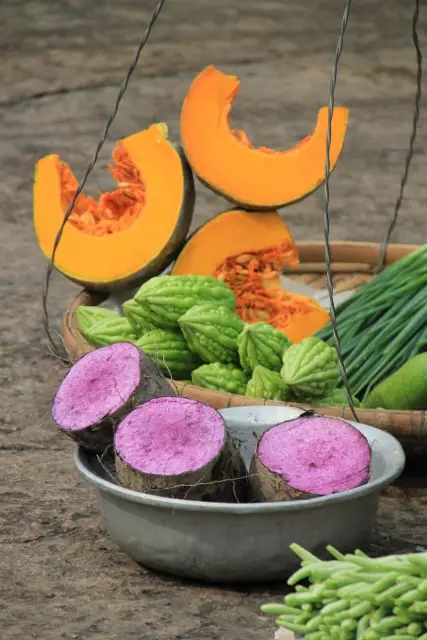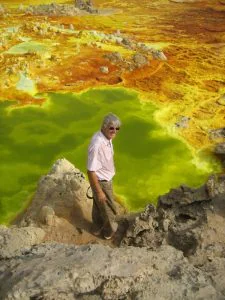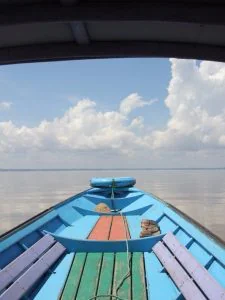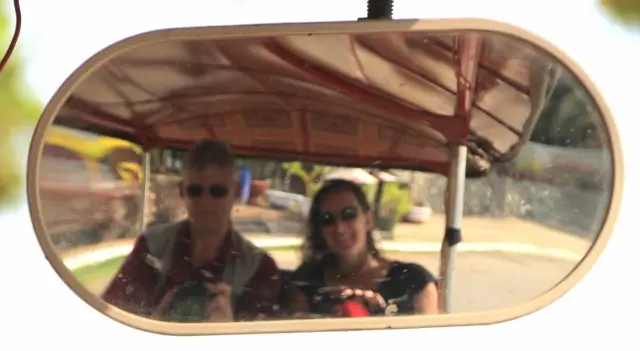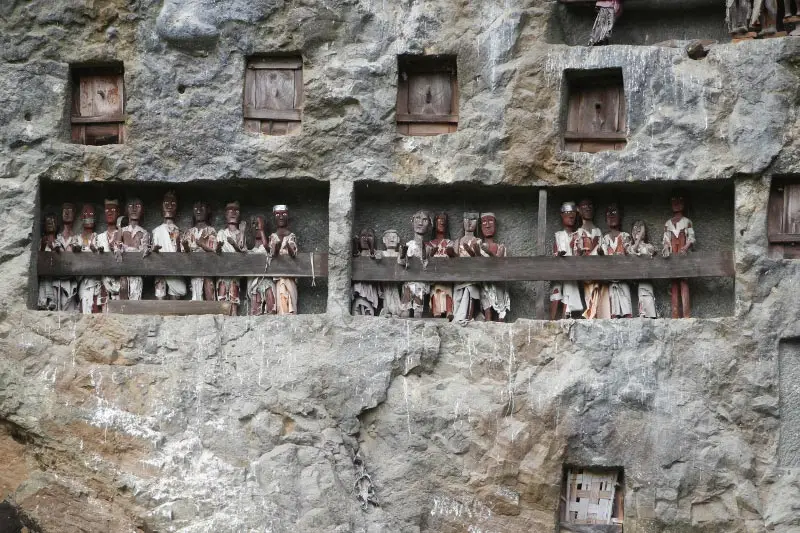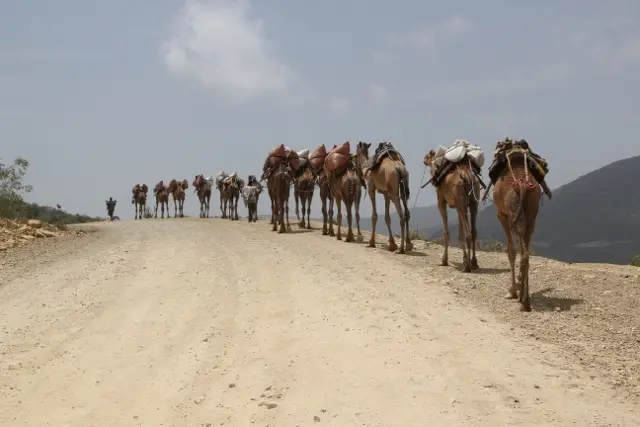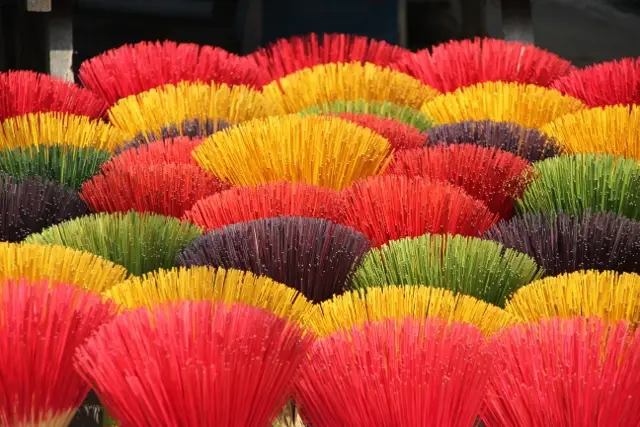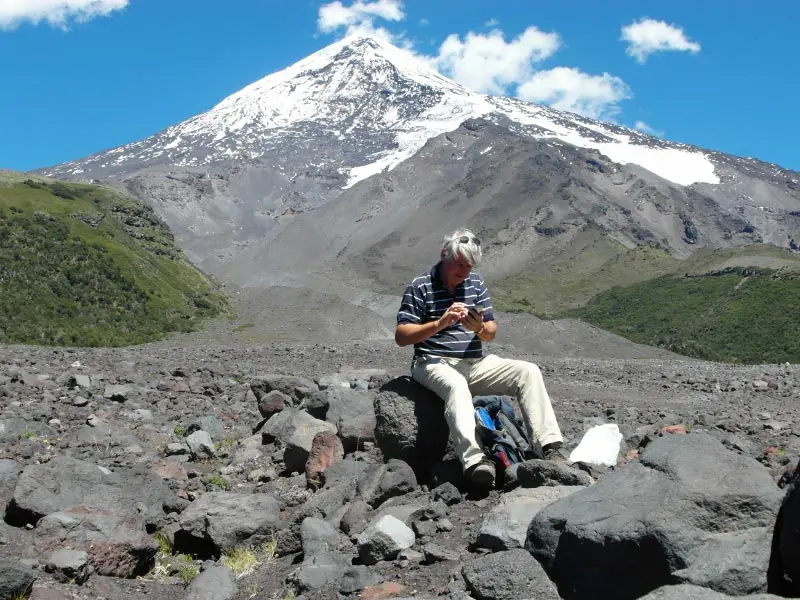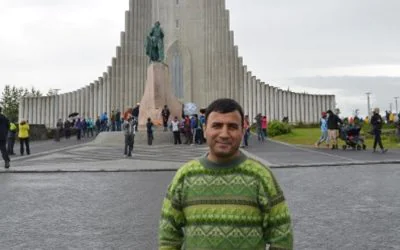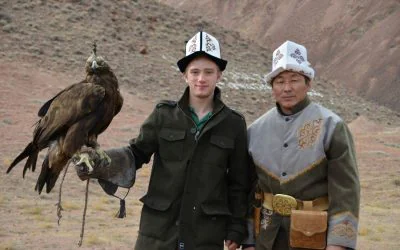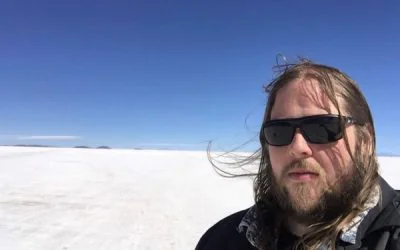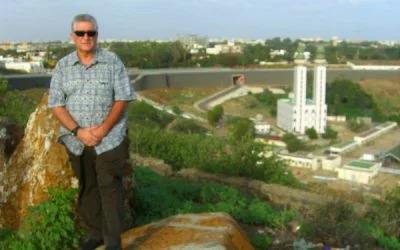Q: Bruno, do you believe you were born a traveler or did you develop into one?
I don’t think people are born as travelers; over time we develop interests, and we – those born in the rich world – are lucky enough to be able to follow up on those interests. In my case, from reading lots of books, Karl May and the like, I decided I wanted to discover foreign countries. My first serious trip was to New York, when I was 18, visiting a friend who lived there. And I remember most vividly not only how different the city was from what I was used to in my comfortable Western European environment, but also how different the people were, in the way they behaved, they interacted. And those were just Americans. By then I had already decided to go and study a subject which I did not only enjoy (never study anything you don’t enjoy!), but with which I could also relatively easily obtain a job abroad, preferably in far-away, ‘strange’ countries.
Q: You have chosen some rather quirky countries, such as Haiti. Somalia, Papua New Guinea. What guides your choice as to where you go? Do you have any particular aims or are you especially attracted to certain aspects of the countries you have been to?
Ah, many of the countries I didn’t choose, my employer at the time did that for me, although I did have some say in that. I have worked abroad for well over 25 years, initially for a large Ango-Dutch oil company which did exactly what I wanted them to do: send me to far-away, strange countries. My first assignment was for 1.5 years in Papua New Guinea, and let me tell you, once you have been there, you are prepared to face any other country in the world! A fabulous experience, which set the pace for the rest of my working life.
The thing about living and working in a country is that you don’t only get to see the sights, but also have the opportunity to develop an understanding of the culture, the people, and why they are how they are. A colleague, an employee, a neighbour, a local shop keeper, these people somehow show you a different aspect of a country than the tourist guide or the fancy hotel staff do. And then the strangeness of a country suddenly becomes familiar, you begin to appreciate why people do thing differently from what we Westerners are used to, and that they often make sense, too. Voila, there you have the true attraction of traveling.
After I retired, and settled back in The Netherlands, I still tried to recreate some of that magic by making long trips, often 2-3 months. We almost always travel independently, with local transport, trying to capture the country’s essence off the beaten track. Of course we’ll see the sights, but getting there is an equally, or even more important part of the trip. I try to transmit some of that on my site, theonearmedcrab.com, where I keep most of my travelogues: stories not of only the tourist highlights, but also about travel experiences, mishaps, local customs, festivals, markets – markets are the best places to taste the local culture, see it, hear it, feel it, and often smell it, too!
Q: You seem to have changed focus in the middle of your life – from a corporate job to a more humanitarian one. Did travel and the things you experienced play a role in this?
I left the oil company, partly because opportunities for jobs in countries I found interesting became more and more limited, due to ongoing centralization of departments, but also because my interest increasingly diverged from that of many of my colleagues, many of whom I also saw socially, outside working hours. That is not a judgment, mind you, everybody is entitled to their own views, but if you have less and less in common with those around you, you need to draw your conclusions. And I happened to have been introduced to the International NGO world not long before I resigned, the same NGO that was kind enough to accept my application, not that common in a sector that frowns upon those with a corporate history…. Great move, of course, because this opened up a range of other countries, and a working environment much closer interwoven with that local experience I was seeking. And on top of that, a different kind of job satisfaction; somehow it is nicer to associate your efforts with a new school, a clinic or clean drinking water for poor people, than with a tiny increase in the dividend paid to shareholders at the end of the year.
Q: Do you always travel with Sofia? What do you feel are the pluses and minuses (if any) of travelling together?
Before I met Sofia, my wife, I often traveled alone. This somehow makes it easier to meet people, as a couple you are less approachable, I guess. Having said that, Sofia is both a social animal and a language wizard. She has the ability to talk to everybody, get information, enquire about bus departure times, negotiate hotel rates, or just strike up a conversation, get invited, anything to do with people, which adds enormously to our travel experience. We form a good team, both with a different angle to a local situation. Literally, too, her photos are often quite different from mine! But the big advantage of traveling together is that you have someone close to share your experiences with, and you have an immediate sound board for your observations, too. Talking about our travels, during and after, just improves both our understanding of what we have seen – even though we don’t always agree.
Q: You have a website called theonearmedcrab.com. Can you explain the choice of name to us and what does it signify?
The reference to a one armed crab is a long story, not particularly interesting neither relevant, so allow me to spare you the details! Let me tell you instead about the road to my own site.
I have always taken lots of photos during my travels, in the various countries I lived in, and I made copious notes not to forget. I also wrote letters, in the days letters were still written, and later extensive emails about our adventures, to friends and family. With internet, things just became easier, and someone suggested keeping a blog, during one of my latest work assignments. One let to the next, and I soon established my platform, theonearmedcrab.com.
Firstly, to write about those places we had been to, but were virtually absent on the web. An example: in 2008 we traveled to a place called Casabindo, in NW Argentina, to see the apparently only existing South American bull fights. Or rather, bull runs, nothing like the Spanish version. And I couldn’t find anything on the internet! We are talking 2009, here! So now you can, on theonearmedcrab.com.
The broader aim of the site is to be a platform for further blogs, travelogues really. I’d like to post our experiences for those who plan to travel there, too, but also for those who may need some encouragement, or just for those who have no intention to travel further then their own armchair, but do have an interest in the rest of the world. Not guidebook-style, others can do that better than I can, but first-hand reporting of the good, the bad and the ugly; well, mostly the good, actually.
And that platform now also starts to become a place to post past experiences, from many years ago, based on those notes and letters I told you about, and illustrated with scanned slides. Bagan in Myanmar 15 years ago, for instance, or memories from Albania even longer ago. All in all, it is becoming a multi-headed monster, but the underlying thread is all to do with traveling.
Q: Your website features an article on the Traveler Century Club and country collecting in general. As a non-country collector, tell us your perspective on such clubs (of which we are one, at least in part, but not entirely!)
The TCC article on my site is a bit of an oddball, but I happened to come across them, read about them, and felt compelled to jot down my views; after all, it is also travel-related. As I said earlier, my interest is in different societies, cultures, people, and for me visiting a country is not complete if I haven’t spent some significant time there, trying to understand the local scene. So, just setting foot in a country isn’t sufficiently satisfying for me. I remember traveling in Malawi, in the 1980s, on a road that formed the border with Mozambique, and I did step across the border (very carefully, there were mine fields at the time), but that doesn’t make Mozambique feature in my countries list.
For the same token, I don’t select the countries we visit just to be able to add them to a list, a country must have something appealing to me, something unique that attracts me, otherwise I am not interested. I rather go back to a place I have been before, but haven’t explored entirely yet – Indonesia is such a country, we lived there for a year, we subsequently traveled there for three months, and we still need to go back.
Q: Can you give us a travel experience – it could be a moment, a day, an event – that has really stood out and you would like to share?
Yeah, the one I never forget is getting out of a bus in Kashgar, in Western China, after a grueling ten-hour bus trip through the Taklamakan desert, complete with flat tires, sand storms and Chinese who took off their shoes whilst refusing to open the windows – as I said, grueling. Having arrived at the bus station I then talked to a taxi driver to bring us to our hotel, but I found his price too high – one or two yuan too high –, so chose not to get in, and let him drive off, only to realize afterwards that we now had to wait even longer for that bit of comfort after this long trip, and that all for the sum of less than 25 cents! The message: yes, you need to ensure that you get value for money, don’t let yourself be ripped off, but don’t lose sight of common sense. In any case, I have learned to be a bit more relaxed about money when traveling, being too tight-fisted isn’t worth the hassle, and often paying a little more than necessary isn’t going to hurt us rich westerners as much as it helps the beneficiary at the other end of the transaction.
Q: Have you ever thought of making a book of your experiences?
Oh yes, I think about it frequently, also because it is so easy, these days, with a host of websites that help you self-publish any book you want. I have turned several of my travelogues into a book, which proudly adorn the bookshelves at home. But those are single-copy issues, a personal souvenir of a beautiful trip. To publish a book that is suitable to be read by others, ISBN number and all, takes a lot more work, I will need to re-write a lot of my blog entries, and be much more selective with photos. Perhaps, one day, I will make the time for it, but for now I am too busy traveling.
Q: What are your following travel plans?
It may sound strange, but we are rather opportunistic in choosing our next destination. Some time earlier we planned a trip to Lebanon and Syria, and had to drop the Syria-part because of the war developing there. Last year, we traveled to Bulgaria and Romania, with the intention to continue to the Crimea, only for the Russians to block that intention. So we went to Uzbekistan, and a few more Central Asian countries, before some of the octogenarian dictators in that region would die, leaving behind a distinctly uncertain future. Our most concrete plan now is six weeks Iran, long a bit unstable as travel destination because of political tensions, but now perhaps a window of opportunity – let’s hope this window stays open for a long time to come. So watch theonearmedcrab.com, somewhere second half next year, for this adventure!
Of course we also travel nearer to home, we just came back from ten days golfing in Scotland, we urgently need to visit some of the French wine regions again, because the cellar runs almost dry, and, with Argentinean in-laws, I do get to travel to Argentina rather frequently, too. Not everything gets onto theonearmedcrab.com, though.
Q: And finally, a strange question that tells us something about you: if you could be granted one superpower, what would you choose and why?
Ha ha, luckily I don’t believe in fairy tales, so I can answer whatever I like in the knowledge that I will never be held to account. I would wish to be the world dictator; a benign one, don’t get me wrong. To make the world a better place, to bring people together, to make people understand each other better – I’d like to think that my travel experience helps a bit, here. Perhaps nudge others along to be more generous, more sharing, and less dogmatic. Make an end to the current migration crisis in the Middle East and Europe, and all future migration crises. Make an end to all other crises, as well, almost always caused by individual power brokers manipulating the people around them with money, with threats of violence – or real violence -, or with religious dogmas or perceived ethnic differences. Did I say I did not believe in fairy tales? Hear me dreaming…
The photos in this article are taken from the personal collection of Bruno Oudmayer.
